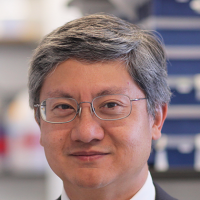Tumor Biology and Microenvironment
Understanding the complex interplay between tumor cells and their surrounding non-malignant cells is opening up new approaches to innovative cancer treatments. The Tumor Biology & Microenvironment Program at Columbia’s Herbert Irving Comprehensive Cancer Center (HICCC) aims to understand the immunological, stromal, and cell-intrinsic mechanisms that regulate tumor initiation and cancer progression with the goal of translating scientific research findings to the clinic.
Major research themes
- Tumor immunology and immunotherapy: Immune checkpoints, regulatory T cells, myeloid-derived suppressor cells, inflammation
- Tumor microenvironment: Tumor stroma, stromal-epithelial interactions, stem cell niche, innervation
- Stemness: Cell type of origin, tumor-initiating cells, lineage specification, cellular plasticity
Current Projects
In 2019, the group received $27M in direct cancer research funding from the National Cancer Institute and National Institutes of Health in 2017. Their multiple ongoing studies include examination of how neural signaling drives gastric and pancreas tumorigenesis, and a co-clinical trial to test the ability of bladder tumor organoids to predict patient response to chemotherapy.
The program also aims to increase understanding of cancer immunology, identify novel immunotherapy approaches, and advance an area of cancer research that is rapidly growing and full of promise. Current projects in this area include development of small molecule c-Rel inhibitor to target regulatory T cells in the tumor microenvironment, and a novel neoadjuvant immunotherapy trial to understand treatment response in patients.
Leadership
The program is led by:


